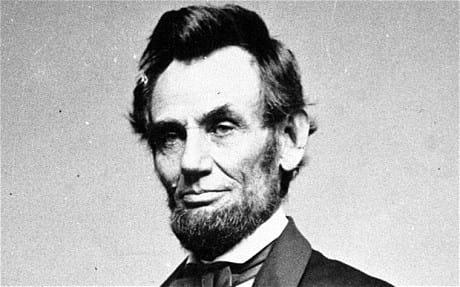A delegation of freed Blacks met with President Abraham Lincoln (pictured) on this day in 1862, the first group of Blacks to ever confer with a sitting U.S. president regarding matters of policy. At the time, President Lincoln urged that Blacks should emigrate to Africa in a bid to colonize, which angered many freed Blacks in the North.
SEE ALSO: Carl Gustaf von Rosen Supports Biafrans In Civil War On This Day in 1968
Keep Up With Face2Face Africa On Facebook!
What President Lincoln attempted to sell as an act of benevolence was seen even by his own contemporaries as a way to rid himself of emancipated slaves and the unfair imbalance between White and Black Americans. The five Black delegates that met with President Lincoln were all educated and considerably well off, although their opinion of the matter has not been properly documented aside from a brief response from chairman Edward Thomas.
From President Lincoln’s address to the Black delegation:
I do not propose to discuss this, but to present it as a fact with which we have to deal. I cannot alter it if I would. It is a fact, about which we all think and feel alike, I and you. We look to our condition, owing to the existence of the two races on this continent. I need not recount to you the effects upon White men, growing out of the institution of Slavery. I believe in its general evil effects on the White race. See our present condition—the country engaged in war!—our White men cutting one another’s throats, none knowing how far it will extend; and then consider what we know to be the truth. But for your race among us there could not be war, although many men engaged on either side do not care for you one way or the other. Nevertheless, I repeat, without the institution of Slavery and the colored race as a basis, the war could not have an existence.
It is better for us both, therefore, to be separated. I know that there are free men among you, who even if they could better their condition are not as much inclined to go out of the country as those, who being slaves could obtain their freedom on this condition. I suppose one of the principal difficulties in the way of colonization is that the free colored man cannot see that his comfort would be advanced by it. You may believe you can live in Washington or elsewhere in the United States the remainder of your life, perhaps more so than you can in any foreign country, and hence you may come to the conclusion that you have nothing to do with the idea of going to a foreign country. This is (I speak in no unkind sense) an extremely selfish view of the case.
What historians have observed is that Lincoln continued to sell the idea of Liberia to freed Blacks, calling colonization of the African nation a success.
Yet, what was at President Lincoln’s core was that he wanted to further colonize like his hero Henry Clay, echoing a viewpoint held by some Whites that Black people would not serve America well by being free of slavery.
President Lincoln was aware that most educated freed Blacks felt they had a stock in America just as much as a White person and would be reluctant to relocate. Thus, he offered colonization in a region that is now Nicaragua.
President Lincoln granted Thomas and the delegation time to embrace and hopefully sell the plan to Black people but never worked alongside them to formalize policy to make the move happen.
Of course, many Blacks voluntarily emigrated to Liberia after it was established in the 1820s and continued to do so; however, President Lincoln’s address was nothing more than talk in the very end.
SEE ALSO: Chad Achieves Independence From France On This Day In 1960










